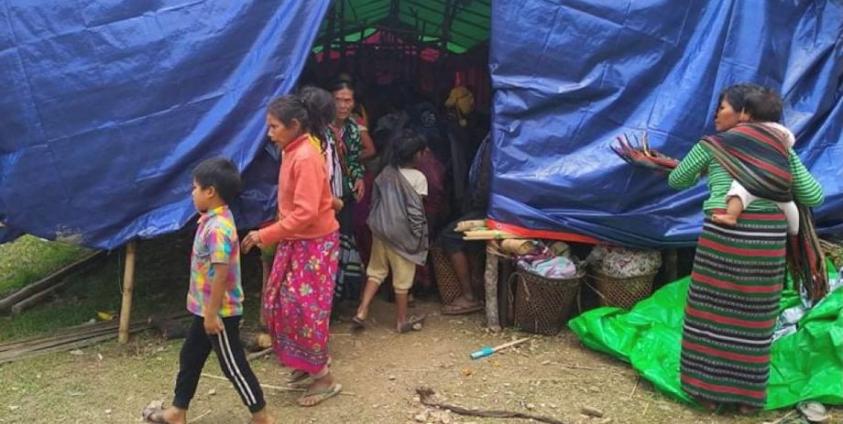Karenni/Kayah State — One of the most deprived conflict- ridden states in dire need of far more funding from international and local organizations, is now facing a deep cuts in humanitarian in Karenni (Kayah) state and a steep decline since the middle of this year.
The Karenni State Interim Executive Council (IEC) informed the Than Lwin Times that until the end of last year, no fewer than 10 local and international non-governmental organizations (NGOs and INGOs) were actively supporting the displaced individuals in Karenni State.
However, as of mid-2023, there has been a gradual decline in the number of aid organizations, with only three remaining support organizations at present, and a notable decrease in the amount of aid being provided.
Karenni State Interim Executive Council (IEC) secretary U Banyar explained that the reduction in humanitarian aid is primarily linked to the recent enactment of the Organization Registration Law by the Military Council.
"Due to the Military Council's new registration law, we are facing significant challenges. As a result, many civil organizations that previously operated in our region are no
longer active. The organizations under the directives of the Military Council often lack practical effectiveness. They lack the necessary experience, are hesitant to access various areas, and are ultimately unable to carry out their intended work due to a lack of permission from the Military Council. This presents a substantial hurdle for us."
On October 28 of the previous year, the Military Council enacted the Organization Registration Law, enabling the confiscation of an organization's assets and resources for the national treasury. Furthermore, this law may result in imprisonment for the organization's members.
Under this legislation, all organizations are required to undergo registration, and any registered organization must refrain from any direct or indirect engagement or support for illegal groups, including both organizations and individuals designated by the state for their involvement in acts classified as terrorist activities.
During a meeting on August 30, the junta leader cautioned government ministers to exercise strict oversight over both local and international non-governmental organizations.
On the other hand, both local and international non-governmental organizations engaged in humanitarian aid efforts in the Karenni region encounter obstacles in delivering assistance. These challenges arise from the constraints enforced by the Military Council, in addition to the prevailing regional instability and ongoing conflicts.
After the military coup, over 250,000 individuals have been displaced due to the ongoing conflict in Karenni State, and those aiding the displaced population report an increasing demand for essential necessities such as food, shelter, water, and medical supplies.







